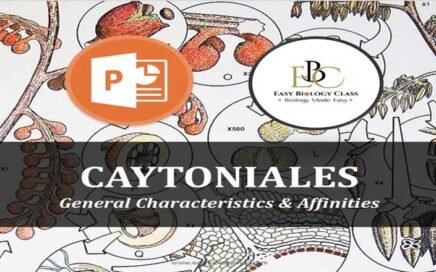
Origin, Evolution, and Diversification of Gymnosperms: A Complete Guide
Gymnosperms are a group of seed-producing plants characterized by naked seeds, typically borne on cones or strobili. They are among the earliest seed plants and […]

Gymnosperms are a group of seed-producing plants characterized by naked seeds, typically borne on cones or strobili. They are among the earliest seed plants and […]

Cycadeoideales (Bennettitales) were an extinct group of seed plants that flourished during the Mesozoic era, especially from the Triassic to mid-Cretaceous periods. They resembled modern […]

Caytoniales PPT: Caytoniales are an extinct group of seed ferns that thrived during the Mesozoic era, particularly in the Jurassic and Cretaceous periods. They are […]

Caytoniales are an extinct group of Mesozoic gymnosperms known primarily from fossil remains. They are characterized by fern-like compound leaves, enclosed ovules within fleshy cupules, […]

Cordaitales is an extinct group of primitive gymnosperms that thrived predominantly during the late Paleozoic era, particularly in the Carboniferous and Permian periods. They are […]

Arabidopsis thaliana as a Model Organism: Have you ever wondered how scientists study plants to understand their growth, development, and responses to the environment? One […]

Adaptive radiation is the rapid diversification of organisms into new forms when environmental changes create new opportunities or challenges. Examples include the Galápagos finches, studied by Charles Darwin, which evolved various beak shapes for different food sources, and the cichlid fish in Africa’s Great Lakes, which diversified into hundreds of species. This process highlights the adaptability and resilience of life, driving biodiversity and the evolution of new species.

Convergent evolution is a captivating phenomenon that highlights the incredible adaptability of life on Earth. This process occurs when unrelated organisms independently develop similar traits or characteristics, despite having different evolutionary histories. By examining convergent evolution, we gain insight into the ingenious ways evolutionary mechanisms work and how similar outcomes can emerge from vastly different starting points.

What is Q Cycle?: The Q cycle (short for quinol cycle) is a series of reactions in which the lipophilic electron carrier Coenzyme Q (CoQ) […]